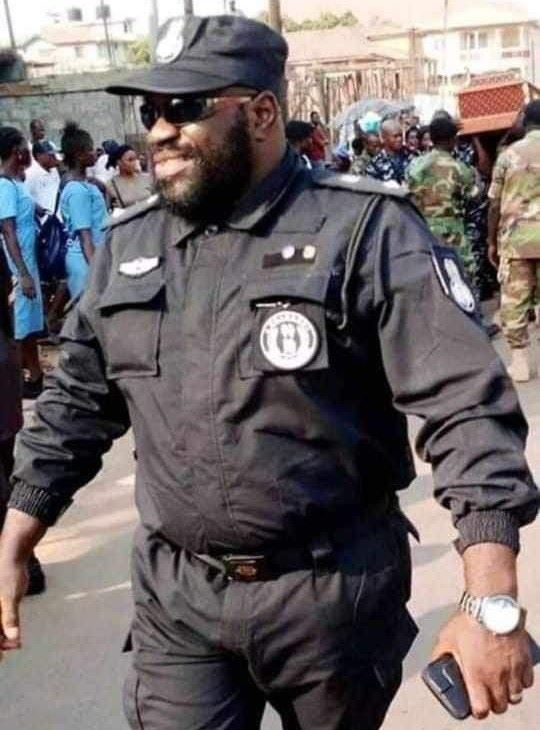CDC Government Remains Tightlipped
What Does Liberia Criminal Procedure Law Say On Extradition?
By Garmah Never Lomo, garmahlomo@gmail.com
Monrovia, Liberia- This news outlet, www.newspublictrust.com has reliably gathered that the Liberian government of President George Manneh Weah has extradited Sierra Leone’s former chief of Police, Mohammed Yeatay Turay who had reportedly fled here after allegedly being involved in a coup plot.
On Monday, we reported that the former Sierra Leonean Police officer allegedly linked to a reported coup plot back home surfaced in Liberia and was believed to have been making phone calls on Liberian GSM numbers, something that has prompted a flurry of Sierra Leone soldiers and security forces who are collaborating with this country’s police in the investigation. Fallout From Sierra Leone Alleged Coup Plot, As Liberia’s Justice Ministry Subpoena 2 GSM Companies – News Public Trust
Although the government has remained tightlipped, Police Chief Suprintendent Turay was said to have been extradited to neighbouring on Monday August 7,2023.
Turay escaped Sierra Leone to seek refuge in Liberia after being accused of treason and subversion.
According to the information gathered, the former Superintendent of police chief Turay was turned over to the Sierra Leonean Army.
Mr. Turay is said to have been escorted with eight pickups full of police authorities and Sierra Leonean army soldiers at 9:30 Pm GMT Monday night.
Despite the government of Liberia late Monday August 7,2023 subpoenaed the two GSM companies Orange and Lone Star to give details informed about the call logs, address, name and text messages.
In January of 2020, a fierce critic of the CDC government and vocal talk show host, Mr. Henry Costa escaped from Liberia to Sierra Leone was declared in fugitive for illegal having in his lesapasa (traveling document).
Sierra Leone’s Minister of Information and Communication, Mr. Mohamed R. Swaray was then quoted as saying this on the British Broadcasting Corporation (BBC) regarding Henry Costa: “Henry is not in detention, he is enjoying the full human rights, we are a sovereign democracy, we don’t take instructions from other people.”
Well, for the benefit of our readers, we bring you verbatim provisions stipulated in Liberia’s Criminal Procedure Law regarding extradition (below).
Criminal procedure law Chapter 8. EXTRADITION
- 8.1. Definitions.
As used in this chapter:
(a)The term “extradition arrangement” means any treaty, convention, or executive agreement providing for reciprocal rights to the surrender of fugitives apprehended in the territory of the parties thereto.
(b)The term “fugitive” means any person within the Republic of Liberia who is accused or has been convicted of an extraditable offense within the jurisdiction of a foreign state.
(c)The term “political offense” includes any offense for which there is substantial ground to believe that the person to be extradited will be punished as a political offender.
Prior legislation: L. 1969-70, CrPL 2:801; 1956 Code 8:900, Rev. Stat. §§1063, 1070; L. 1892-93, 12, §§20, 21.
- 8.2. Applicability of chapter.
1.General application.
This chapter shall apply to all requisitions by foreign states for the extradition of persons within the jurisdiction of the Republic of Liberia and proceedings incident thereto, provided that there is at the time of the receipt of the requisition or of the proceedings incident thereto an extradition arrangement in force with the requesting foreign state.
2.Construction subordinate to extradition arrangements.
If any provision of this chapter is inconsistent with the terms of the applicable extradition arrangements, the latter shall prevail. This chapter shall be so construed as not to contravene the spirit of the extradition arrangement as contemplated by the parties at the time of its negotiation.
The United Nations convention on refugees says
This convention was enshrined in Article 78 of the European Union treaty.[2]
The Refugee Convention builds on Article 14 of the 1948 Universal Declaration of Human Rights, which recognizes the right of persons to seek asylum from persecution in other countries. A refugee may enjoy rights and benefits in a state in addition to those provided for in the Convention.[3]
The rights created by the Convention generally still stand today. Some have argued that the complex nature of 21st century refugee relationships calls for a new treaty that recognizes the evolving nature of the nation-state, economic migrants, population displacement, environmental migrants, and modern warfare.[4][5] Nevertheless, ideas like the principle of non-refoulement (non-returning of refugees to dangerous countries) (Article 33) are still applied today, with the 1951 Convention being the source of such rights.[6]
Also the African Chapter on People’s Right Chapter 12.
Every individual shall have the right to freedom of movement and residence within the borders of a state provided he abides by the laws.
Every individual shall have the right to leave any country including his own and to return to his country. This right may only be subject to restrictions, provided for by law for the protection of national, security law and order, public health or morality.
Every individual shall have the right when persecuted to seek and obtain asylum in other countries in accordance with the laws of those countries and international conventions.
A non-national legally admitted in a territory of a state party to the present Chapter, May only be expelled from it by virtue of a decision taken in accordance with the law.

